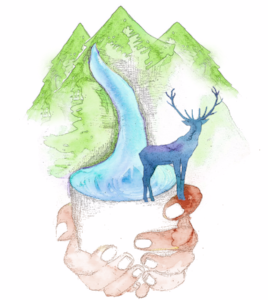Pathways to Africa
This was a good question asked during the Pathways Africa 2018 conference in Namibia. It is a question, I believe, a lot of us in that very room ask ourselves daily as we carry out research in the human dimensions of wildlife conflict, coexistence and wildlife governance. Surrounded by over 350 scientists and conservation managers, representing 35 different countries, we were at the conference to further understand the state of human dimensions science and its application for people on the ground.
Many people are living alongside wildlife, including predators and large mammals. Some people are reaping benefits, whereas others are experiencing costly impacts. Growing human pressures, such as migration and settlement, development, tourism growth and extractive resource use are increasing the interactions between human and wildlife. Science needs to be carried out, but what was very important for people in the room, was to see action and discussion with local communities to address the mitigation of human-wildlife issues.
People want to have their voices heard, and they want scientists and policy-makers to consider and include their values and attitudes in wildlife mitigation strategies. This is challenging as attitudes such as acceptance and tolerance are experienced differently between people. But what was emphasized by attendees at the conference was a need to try, a need for collaboration and a need for application of various tools. New technological tools such as circuitscape, habitat modeling, and new aerial survey techniques (ex: work by Innoventi Consulting) were some examples presented that are being applied in the field. Further, the application and identificaition of traditional practices, taboos and beliefs need to be used as a tool for protection and conservation of our natural resources.
I encourage anyone to further explore the partners, organizations and people who attended this conference.
Pathways to Africa: HERE
Cheetah Conservation Fund: HERE
Ecoexsit Project: HERE
KAZA TFCA Conservation Area: HERE
Save the Elephants: HERE
Awely, Wildlife and People: HERE






